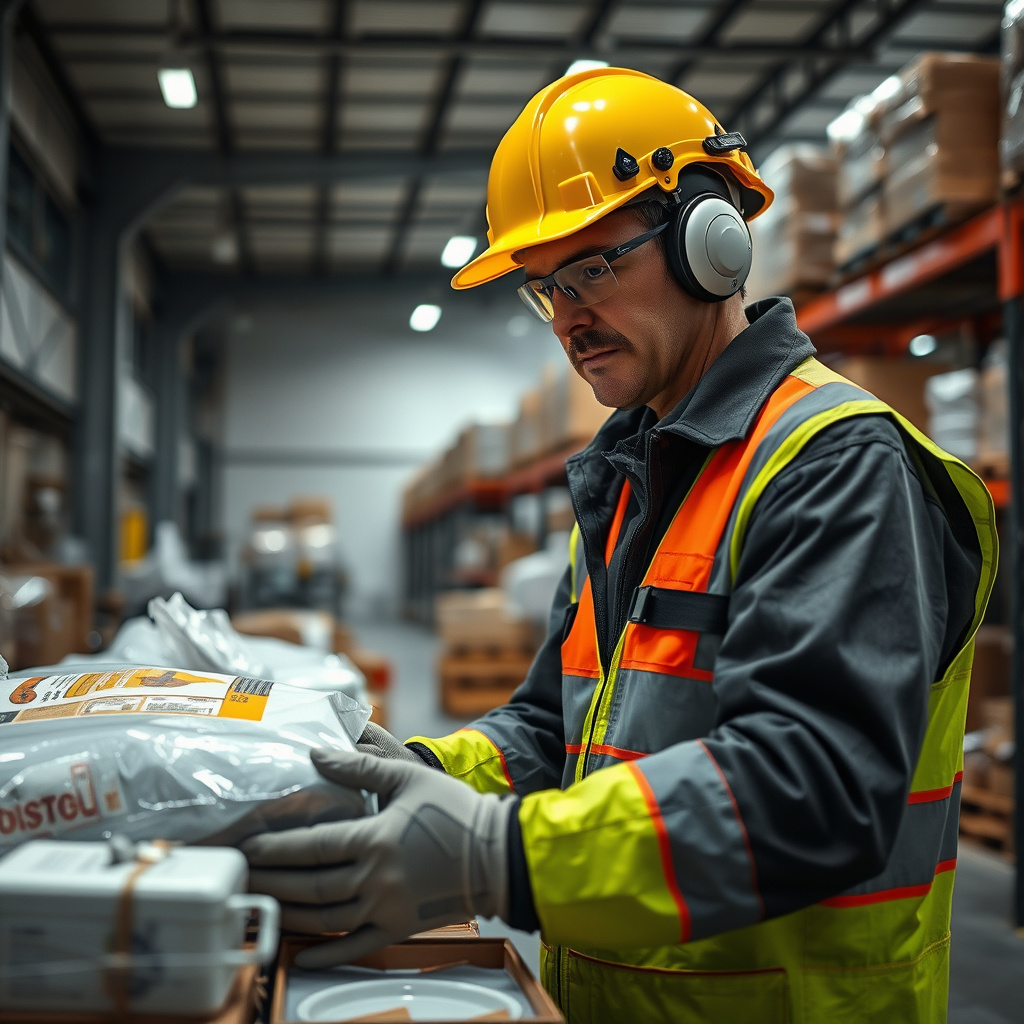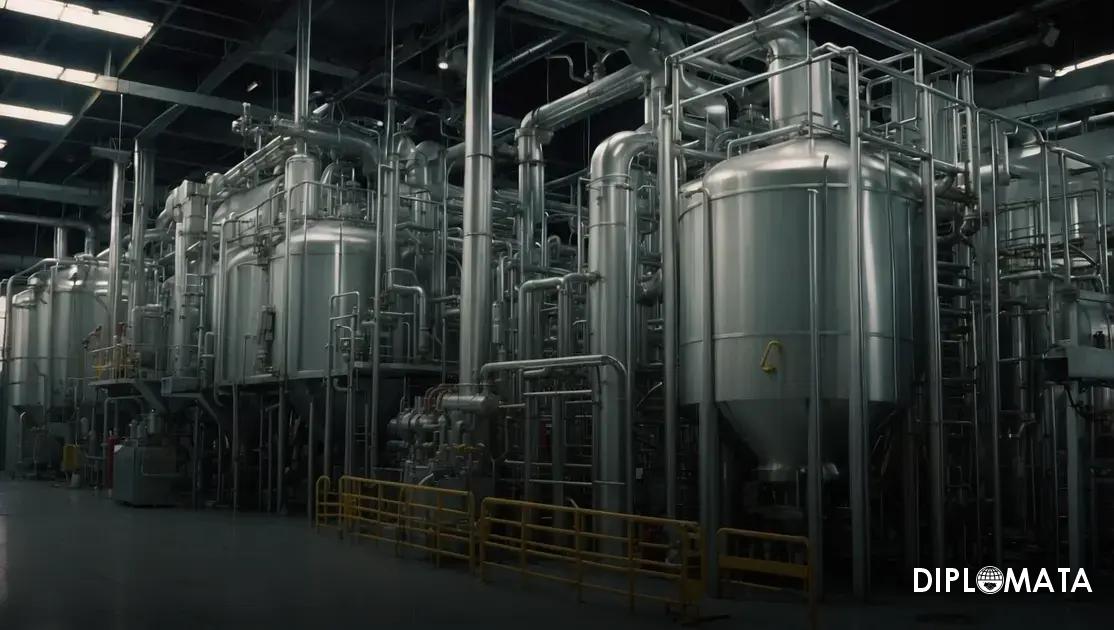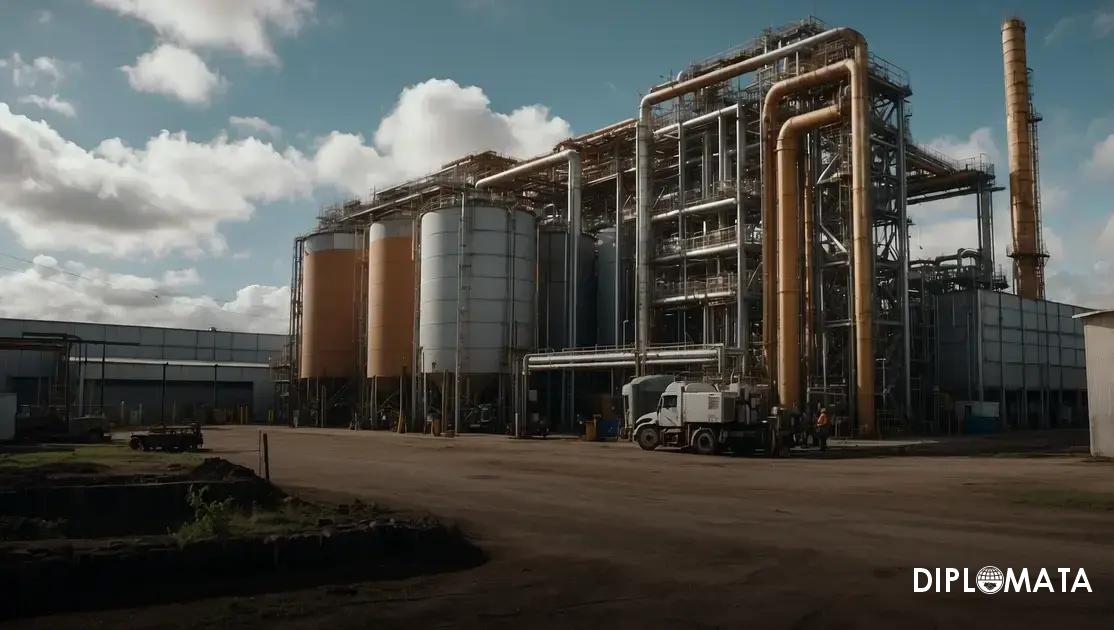What are the challenges in last-mile logistics for chemical products? These challenges include regulatory compliance, safety concerns, and the need for specialized transportation methods to ensure that chemical products are delivered safely and efficiently.
What are the challenges in last-mile logistics for chemical products? This question is crucial for companies in the chemical industry as they navigate the complexities of transporting hazardous materials. In this article, we will uncover the key challenges faced during the last-mile delivery process, including regulatory hurdles, safety concerns, and the importance of specialized transportation methods.
By understanding these challenges, businesses can implement effective strategies to enhance their logistics operations and ensure compliance with safety standards. You’ll learn not only about the obstacles but also about the best practices for overcoming them, enabling your company to thrive in a competitive market.

In the intricate world of logistics, the last mile is often considered the most challenging segment of the supply chain, especially when it involves chemical products. As industries increasingly demand reliable and efficient transportation of chemicals, understanding the unique challenges associated with last-mile logistics becomes paramount. In this article, we will explore what these challenges are and how businesses can navigate them effectively.
Understanding the Basics of Last-Mile Logistics for Chemicals
Last-mile logistics refers to the final step of the delivery process when products are transported from a distribution center to the end customer. In the context of chemical products, this process is uniquely complex due to the nature of the materials involved. Chemicals often require specific handling and storage conditions, making their last-mile delivery different from standard goods.
Key concepts include:
Specialized Packaging: Chemicals must be packaged securely to prevent leaks and contamination.
Compliance Regulations: Adhering to local and international regulations is crucial for safety and legality.
Temperature Control: Many chemical products are sensitive to temperature variations, necessitating specialized transport solutions.
The Significance of Efficient Delivery in the Chemical Industry
Efficient last-mile logistics can significantly enhance customer satisfaction by ensuring timely deliveries of chemical products. When logistics processes are optimized, companies can reduce operational costs, improve inventory management, and ensure compliance with regulatory requirements.
Some benefits of effective last-mile logistics include:
Increased Customer Satisfaction: Timely deliveries lead to happier clients.
Cost Reduction: Efficient logistics can lower transportation costs and reduce waste.
Regulatory Compliance: Adhering to safety standards protects both your company and your clients.
Key Criteria for Selecting Last-Mile Logistics Solutions for Chemicals
Choosing the right logistics provider is critical for successful last-mile operations. Here are some criteria to consider:
- Expertise in Chemical Handling: Ensure the provider has experience with chemical logistics.
- Certifications: Look for logistics solutions that comply with industry regulations.
- Safety Standards: Verify that the provider adheres to safety protocols to minimize risks.
- Technology Integration: Providers should utilize technology for tracking and optimizing deliveries.
Step-by-Step Guide to Implementing Last-Mile Logistics for Chemical Products
Implementing an effective last-mile logistics strategy involves several steps:
- Planning: Assess your supply chain and identify key delivery points.
- Execution: Work with your logistics provider to establish routes and schedules.
- Monitoring: Use technology to track deliveries and adjust as necessary.
Advanced Techniques and Best Practices in Chemical Logistics
To further enhance last-mile logistics for chemical products, consider the following advanced techniques:
- Route Optimization: Utilize software that optimizes delivery routes to save time and fuel.
- Sustainability Initiatives: Implement eco-friendly practices in logistics operations.
- Technology Utilization: Invest in tracking systems that provide real-time updates on deliveries.
Common Pitfalls in Last-Mile Logistics and How to Avoid Them
Identifying common pitfalls can save time and resources. Some frequent challenges include:
- Compliance Issues: Failing to meet regulatory standards can lead to fines and delays.
- Miscommunication: Ensure clear communication between logistics providers and customers to prevent misunderstandings.
- Inadequate Training: Train staff on safety and handling protocols to minimize risks.
Conclusion
Last-mile logistics for chemical products present unique challenges that require specialized strategies and careful planning. By understanding these challenges and implementing best practices, companies can enhance their logistics operations, ensuring safe and efficient delivery of chemical products. For businesses seeking reliable logistics solutions, partnering with experienced providers like DIPLOMATA COMERCIAL can make a significant difference.
Our Expertise in Chemical Logistics
The content provided reflects our deep expertise in the chemical logistics market. With 20 years of experience, we specialize in glycerin manufacturing, owning our production facilities, and being a renowned supplier. This positions us as a trusted source on what are the challenges in last-mile logistics for chemical products.
Our Location: Av. Ipanema N° 165 – Empresarial 18 do Forte, Barueri – SP. CEP: 06472-002
Frequently Asked Questions
What are the main challenges in last-mile logistics for chemical products?
The main challenges include regulatory compliance, ensuring safety during transportation, managing temperature-sensitive shipments, handling hazardous materials, and maintaining accurate documentation. Additionally, the need for specialized vehicles and trained personnel adds complexity to the last-mile delivery process.
How do regulations impact last-mile logistics for chemicals?
Regulations dictate how chemical products must be packaged, labeled, and transported. Compliance with local, national, and international laws is essential to avoid legal issues and fines. This often requires additional training and adherence to stringent safety protocols, complicating last-mile logistics.
What safety measures are necessary for delivering chemical products?
Safety measures include using proper packaging to prevent leaks, employing trained personnel for handling, and ensuring vehicles are equipped for hazardous materials. Additionally, implementing emergency response plans and conducting regular safety training are crucial to mitigate risks during last-mile delivery.
Why is temperature control important in chemical last-mile logistics?
Temperature control is vital for chemicals that are sensitive to heat or cold, as improper handling can lead to degradation, reduced efficacy, or safety hazards. Maintaining the right temperature during last-mile delivery ensures product integrity and compliance with safety regulations.
How can technology improve last-mile logistics for chemical products?
Technology can enhance last-mile logistics through route optimization, real-time tracking, and automated documentation processes. IoT devices can monitor temperature and conditions during transport, while data analytics can help companies predict demand and optimize inventory management, improving overall efficiency.





